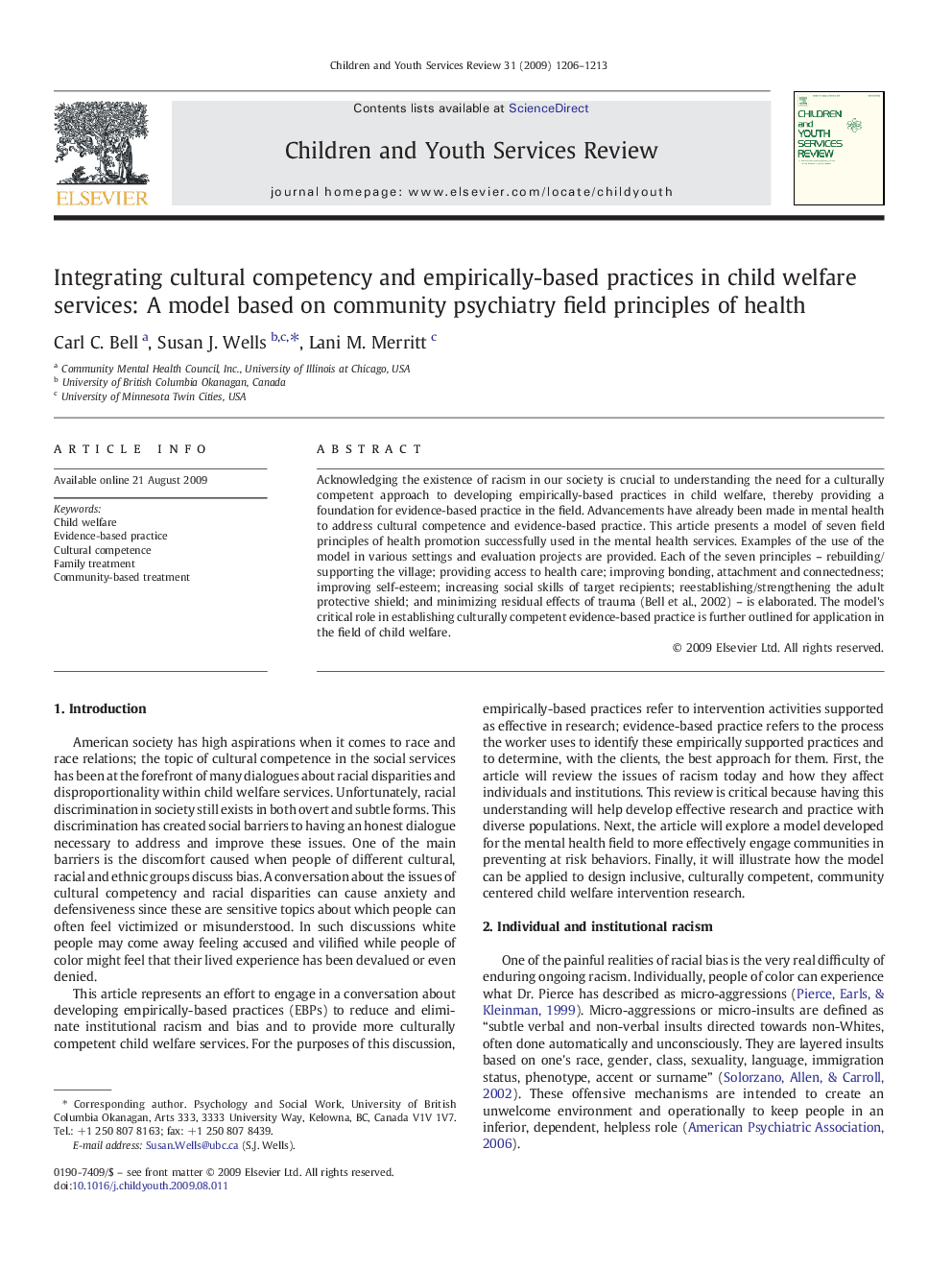| Article ID | Journal | Published Year | Pages | File Type |
|---|---|---|---|---|
| 347554 | Children and Youth Services Review | 2009 | 8 Pages |
Acknowledging the existence of racism in our society is crucial to understanding the need for a culturally competent approach to developing empirically-based practices in child welfare, thereby providing a foundation for evidence-based practice in the field. Advancements have already been made in mental health to address cultural competence and evidence-based practice. This article presents a model of seven field principles of health promotion successfully used in the mental health services. Examples of the use of the model in various settings and evaluation projects are provided. Each of the seven principles – rebuilding/supporting the village; providing access to health care; improving bonding, attachment and connectedness; improving self-esteem; increasing social skills of target recipients; reestablishing/strengthening the adult protective shield; and minimizing residual effects of trauma (Bell et al., 2002) – is elaborated. The model's critical role in establishing culturally competent evidence-based practice is further outlined for application in the field of child welfare.
